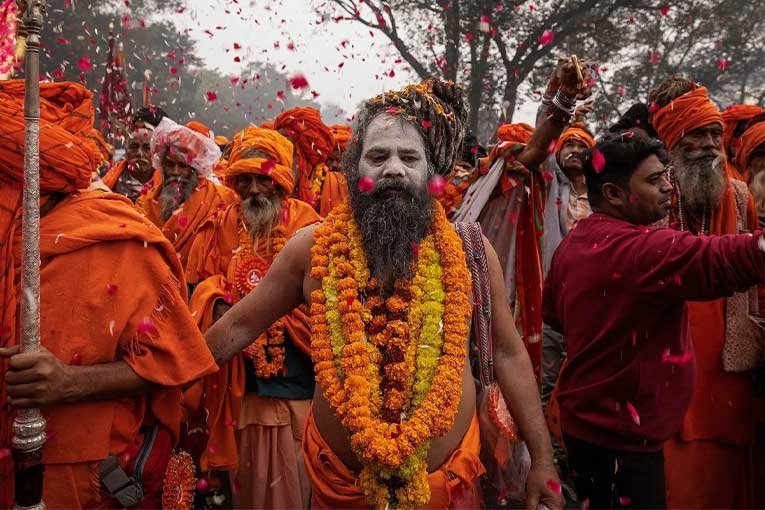Experience the Spiritual Spectacle of the Mahakumbh Festival
The Mahakumbh Festival, one of the largest spiritual gatherings in the world, is a mesmerizing event that draws millions of devotees, saints, and pilgrims to the banks of the sacred rivers in India. This grand festival, which takes place every 12 years, is a celebration of faith, devotion, and spiritual renewal. Steeped in centuries-old traditions and rituals, the Mahakumbh Festival offers a unique opportunity to witness the convergence of spirituality, culture, and community on a monumental scale.
Key Rituals and Ceremonies
At the heart of the Mahakumbh Festival are the sacred rituals and ceremonies that are performed with great reverence and devotion. One of the most significant rituals is the Shahi Snan, or the Royal Bath, where thousands of sadhus, saints, and devotees take a dip in the holy rivers to cleanse their souls and seek blessings. The Shahi Snan is believed to wash away sins and bestow spiritual merit upon the participants. The sight of millions of people coming together to bathe in the sacred waters is a powerful and awe-inspiring experience.
Another important ritual during the Mahakumbh Festival is the procession of the Akharas, or the monastic orders of sadhus, who march in grand processions dressed in saffron robes and carrying flags and banners. The Akharas represent different sects and lineages within the Hindu tradition, each with its own unique practices and philosophies. The sight of the Akharas parading through the streets is a colorful and vibrant display of religious fervor and devotion.
The Vibrant Atmosphere
The Mahakumbh Festival is a celebration of life, spirituality, and community, and the atmosphere is electric with energy and enthusiasm. The air is filled with the sound of chanting, drumming, and singing as devotees engage in prayer and meditation. The streets are lined with colorful tents and stalls selling religious artifacts, souvenirs, and food. The aroma of incense and flowers mingles with the scent of fresh produce and spices, creating a sensory feast for the soul.
The festival grounds are a bustling hub of activity, with spiritual discourses, cultural performances, and religious ceremonies taking place throughout the day and night. Devotees gather in large congregations to listen to the teachings of revered saints and gurus, seeking guidance and inspiration on their spiritual journey. The Mahakumbh Festival is a melting pot of traditions, beliefs, and practices, where people from all walks of life come together in a spirit of unity and harmony.
Gathering of Saints and Pilgrims
One of the most remarkable aspects of the Mahakumbh Festival is the gathering of saints, sages, and spiritual leaders from across India and beyond. These holy men and women, known as sadhus and sadhvis, are revered for their wisdom, piety, and renunciation. They come to the Mahakumbh Festival to impart teachings, blessings, and guidance to the devotees and seekers who flock to the sacred rivers in search of spiritual fulfillment.
The presence of the saints and sages adds a mystical and transcendent quality to the festival, infusing the atmosphere with a sense of divine grace and blessings. The sadhus and sadhvis are often seen meditating in secluded corners, performing austerities, or engaging in philosophical debates with fellow seekers. Their presence serves as a reminder of the enduring power of faith and the timeless wisdom of the spiritual traditions.
Significance of Bathing in the Sacred Rivers
One of the most sacred and transformative aspects of the Mahakumbh Festival is the act of bathing in the holy rivers, such as the Ganges, Yamuna, and Saraswati. The rivers are believed to be imbued with divine energy and blessings, and a dip in their sacred waters is said to purify the body, mind, and soul. Devotees immerse themselves in the rivers, chanting prayers and mantras, offering flowers and incense, and seeking forgiveness for their sins.
The act of bathing in the sacred rivers is not merely a physical cleansing but a spiritual rebirth, a symbolic gesture of surrender and purification. It is believed that by immersing oneself in the holy waters during the Mahakumbh Festival, one can wash away the accumulated karmas and attain liberation from the cycle of birth and death. The experience of bathing in the rivers is a deeply personal and transformative one, a moment of communion with the divine that leaves a lasting impression on the heart and soul.
In conclusion, the Mahakumbh Festival is a unique and transformative experience that offers a glimpse into the rich tapestry of India’s spiritual and cultural heritage. The festival brings together millions of people from all walks of life, united in their faith and devotion, creating a vibrant and dynamic tapestry of sights, sounds, and experiences. Whether you are a seeker, a pilgrim, or a curious traveler, the Mahakumbh Festival is a journey of the soul, a sacred pilgrimage to the very heart of India’s spiritual tradition.







